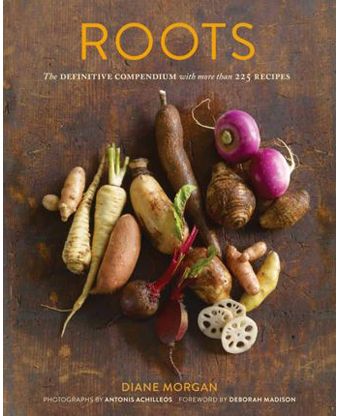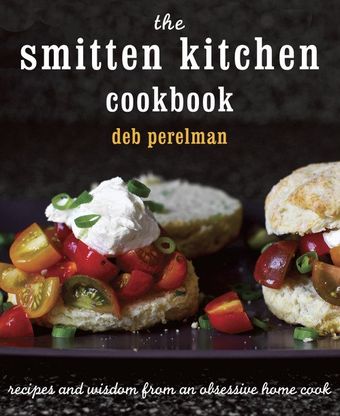"Build a better mousetrap and the world will beat a path to your door."
Incorrectly attributed to Ralph Waldo Emerson, this well-known mousetrap quote has come to stand for innovation and creativity -- an homage, if you will, to the idea that he who does something best will ultimately win. To which I say: hogwash!
In the worlds of sports and television (the only two fields to which I can lay claim), being the best at something rarely correlates to winning. If it did, Dan Marino, not Joe Montana, would have won multiple Super Bowls instead of none, and Masterpiece Theatre would consistently draw more viewers than Honey Boo Boo, Snooki, or any of those other inane reality characters who've unfortunately wormed their way into mainstream popular culture. Popular culture -- now there’s an oxymoron. But I digress.
Subtitled The Definitive Compendium, Roots is a thorough and complete volume, detailing anything and everything one could possibly ever want to know about root vegetables. The 225 recipes within its pages stamp Roots as an encyclopedia for those who want one dedicated to such a specific subject, but also for home cooks; some of the recipes I cooked were simple and accessible.
The Butter Mashed Yukon Gold Potatoes with Parmesan were both easy and quick, and most importantly, delicious. The Horseradish Sour Cream Dip was a good alternative to your run-of-the-mill dips, the fresh horseradish introducing a different, subtle flavor to the whole dish. Spicy Thai Pickled Carrots, again: quite good, and a great payoff for such simple steps.
However, the majority of the recipes in Roots do require a degree of expertise and experience that will, I believe, challenge all but the most ardent of amateur cooks.
Morgan's recipe for Chioggia Beet Carpaccio for example, produces a dish that while very good and attractive, asks the reader to fry cheese -- a challenge for even accomplished home cooks. Further, it asks for beets sliced to a thinness matching the depth of Ann Coulter's intellect, a task I found near impossible.
Perhaps most importantly, Roots asks a lot of readers when it comes to sourcing ingredients. Unless your local market routinely stocks vegetables like crosne, malanga, galangal, scorzonera, or burdock root, Morgan's book is probably not the book for you.
By contrast, Deb Perelman's The Smitten Kitchen Cookbook reads like it's being told by a close friend. As she herself notes, Perelman is not a restaurant owner, or a chef -- hell, she never even waitressed. She is instead, what many people (myself included) quietly profess to be: a curious person who likes to cook. And she enjoys the whole process while coping with a lack of professional education or environment.
Perelman's own kitchen is quite small, a stark opposite of her imagination and her enthusiasm. Though it is precisely the latter that at times leads her to overreach. Her recipe for Tiny but Intense Chocolate Cake, for example, produced a cake that was neither tiny nor intense. And her Roasted Tomatoes and Cipollini Onions with White Beans made for a beautiful photograph in her book, but all efforts to match it proved futile. Her recipe, for me at least, produced instead either nicely browned onions with tomatoes that had turned to mush, or nice tomatoes paired with onions that appeared to have never seen the inside of an oven.
Such missteps are, however, quite rare. In the main, Perelman's offerings produced some dishes that were at once incredibly simple and unpretentiously luscious.
Mustard Milanese with an Arugula Fennel Salad was a hit as the main course for a small dinner party. Her Tarragon Oven Fries were so simple and basic that even a guy like Lance Armstrong wouldn't feel cheated. And the Harvest Roast Chicken with Grapes, Olives and Rosemary made me feel like I'd produced something extraordinary, when in fact I'd merely followed a few steps that are exceptional only in their simplicity.
Whether you're a cooking beginner, a kitchen hopeful, a food enthusiast, or even a chef, her book won’t disappoint. The Smitten Kitchen Cookbook seems well-suited to rewarding a variety of readers with commensurate levels of enthusiasm and/or expertise. In the end, Deb Perelman hasn't necessarily written a better cookbook than Roots, but in writing one that's more readable, user-friendly, and ultimately, more enjoyable, her cookbook is the clear-cut winner. To hell with better mousetraps!



32 Comments
This was a funny, charming review, even though he didn't pick my friend Diane Morgan's book. How thoroughly enjoyable!